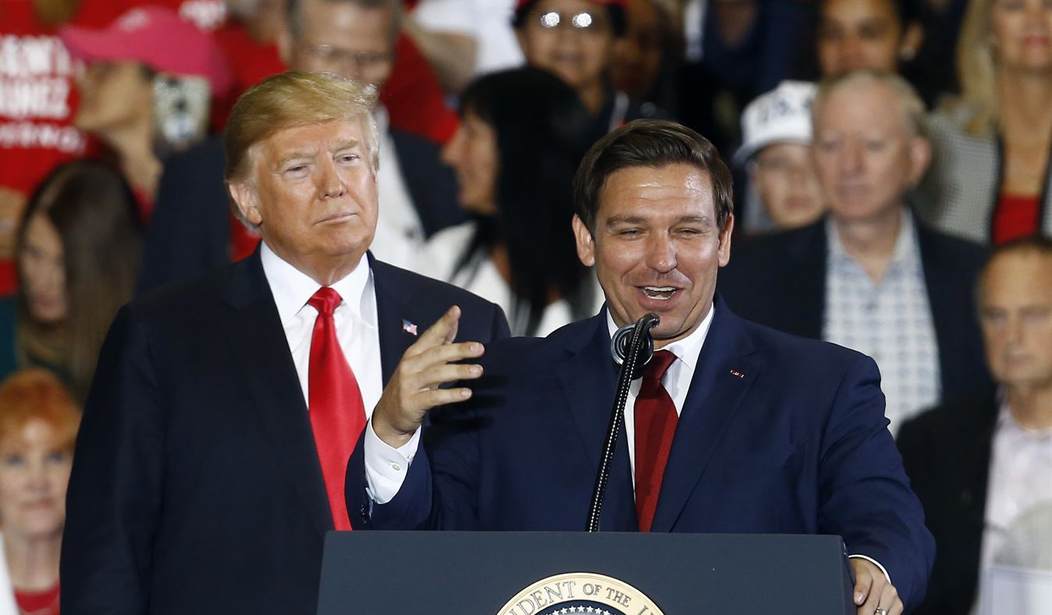With less than 30 days remaining until the 2022 midterms, the 2024 presidential election looms ever larger. As all-but-announced candidates, Joe Biden and Donald Trump continue to blast one another, other hopefuls are already plotting their strategies and jockeying for position, while every utterance, action, or misstep becomes ever more critical.
A new survey, conducted October 12-13 by the Center for American Political Studies (CAPS) at Harvard University, The Harris Poll, and HarrisX, asked respondents to rate top political figures as very favorable, favorable, unfavorable, very unfavorable, never heard of them, or no opinion. The top 16 — ranked first to last — as listed by Daily Wire, were:
- Florida Governor Ron DeSantis: +6
- Former Vice President Mike Pence: +4
- South Carolina Republican Senator Tim Scott:+3
- Former President Donald Trump: (0)
- Independent Vermont Senator Bernie Sanders: 0
- Texas Republican Senator Ted Cruz: 0
- Former Secretary of State Mike Pompeo: -3
- President Joe Biden: -8
- Arizona Democrat Senator Kyrsten Sinema: -9
- Vice President Kamala Harris: -10
- Democrat Senate Majority Leader Charles Schumer: -12
- New York Democrat Congresswoman Alexandria Ocasio-Cortez: -12
- Twice-failed Democrat presidential candidate Hillary Clinton: -13
- West Virginia Democrat Senator Joe Manchin: -15
- Democrat House Speaker Nancy Pelosi: -22
- Republican Senate Minority Leader Mitch McConnell: -22
Results were weighted, as is common in political polling, based on age, gender, race/ethnicity, marital status, household size, income, employment, education, political party, political ideology, and geographical area, where necessary, to align with actual proportions in the population. Score-weighting was also used to adjust for respondents’ online propensity.
So… let’s have a short discussion about survey results before drawing conclusions.
As we saw in 2016 and 2020, survey results and conclusions are generally interpreted based in large part on the political predisposition of those drawing conclusions. Politicians and their followers — in both parties — tend to laud results favorable to their candidacies and dismiss or blast those that are not, as was the case with Donald Trump in the past two elections. While Trump heralded polls favoring him, he blasted those that didn’t as “fake” — often from the same polling organizations he’d previously lauded.
Moreover, polling is neither an exact science nor a guarantee of outcome, results are weighted by how questions and framed, and at best, are snapshots in time, and should be viewed as part of an overall trend.
The Bottom Line
With the midterms soon behind us, both parties face serious issues in 2024. To claim otherwise is at best, delusional. While Democrats must first resolve the Biden-Harris problem, the troubling question of “Then, who?” is unenviable — particularly to a party whose poster boy is widely blamed for the major issues facing tens of millions of Americans as we speak.
On the R side, the Trump or DeSantis question continues to gain traction. DeSantis is widely seen as the future of the Republican Party. His recent handling of Hurricane Ian has earned praise from top political rivals, including Biden, who praised the Florida governor’s handling of the catastrophic storm as “pretty remarkable.”
So, should DeSantis try to ride his wave of successes all the way to the White House in 2024, or should he — as pushed by many Trump supporters — cede 2024 to Trump and wait until 2028 or beyond?
I ask — this time, anyway — and you make the call.














Join the conversation as a VIP Member